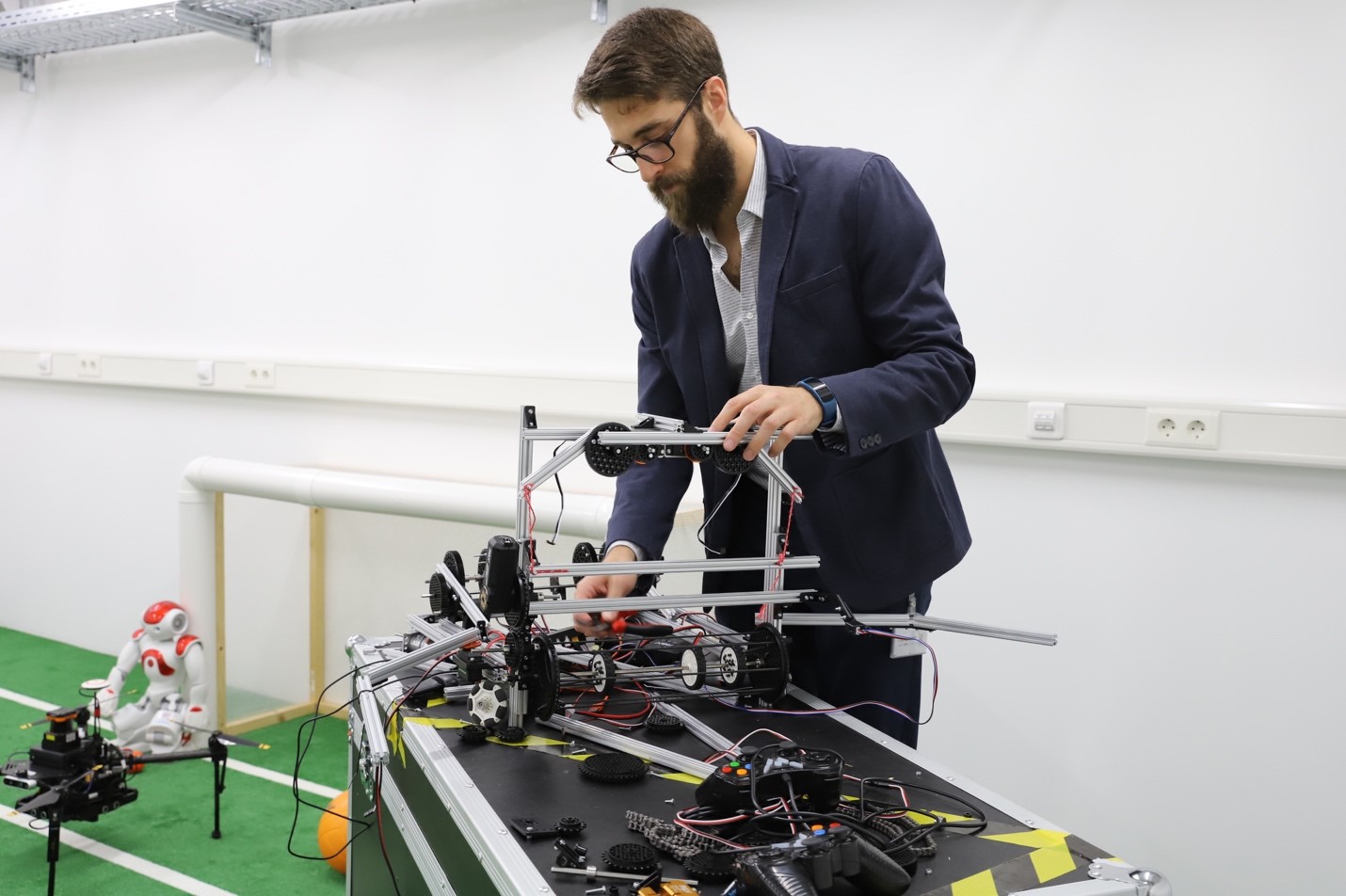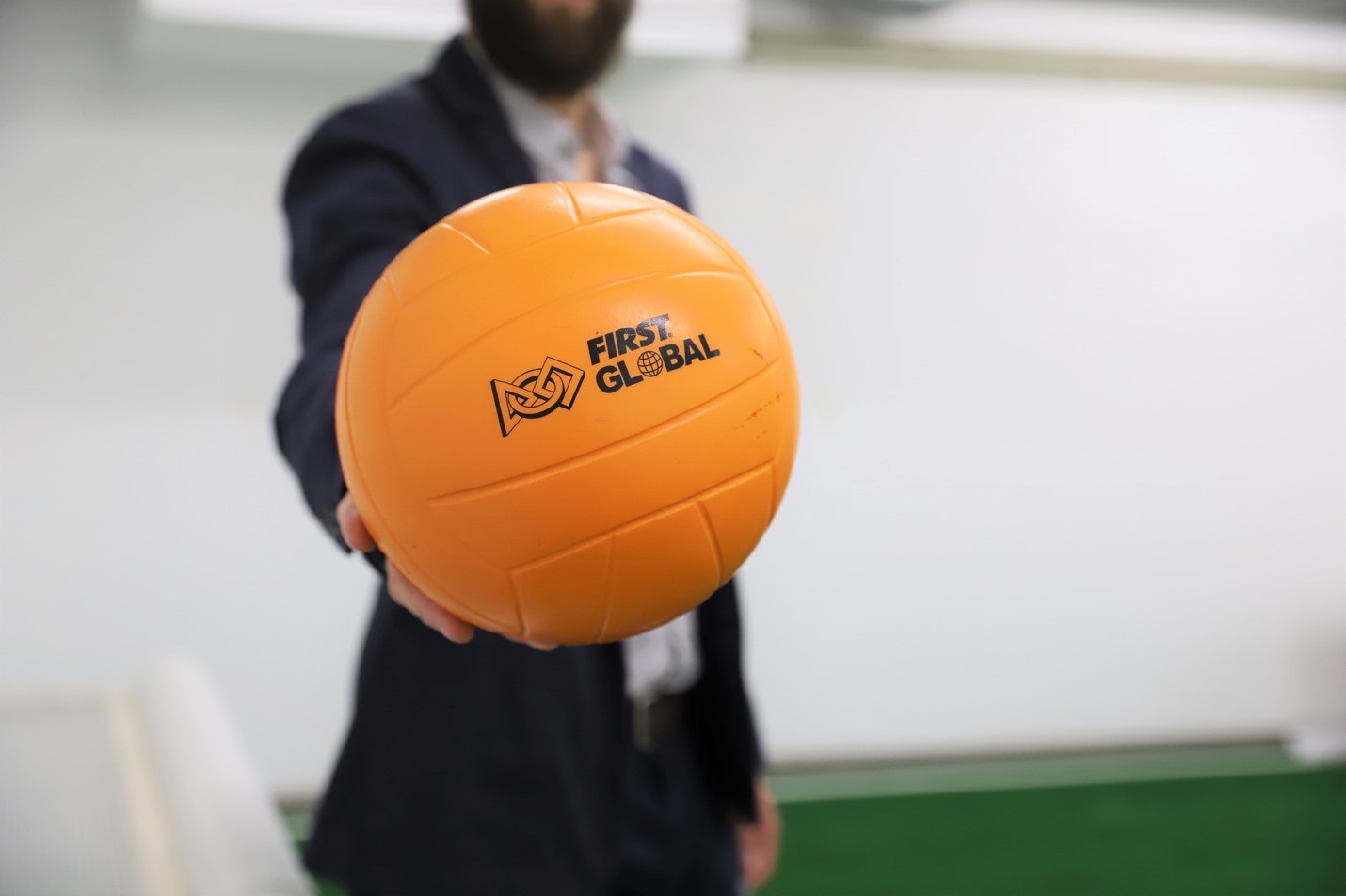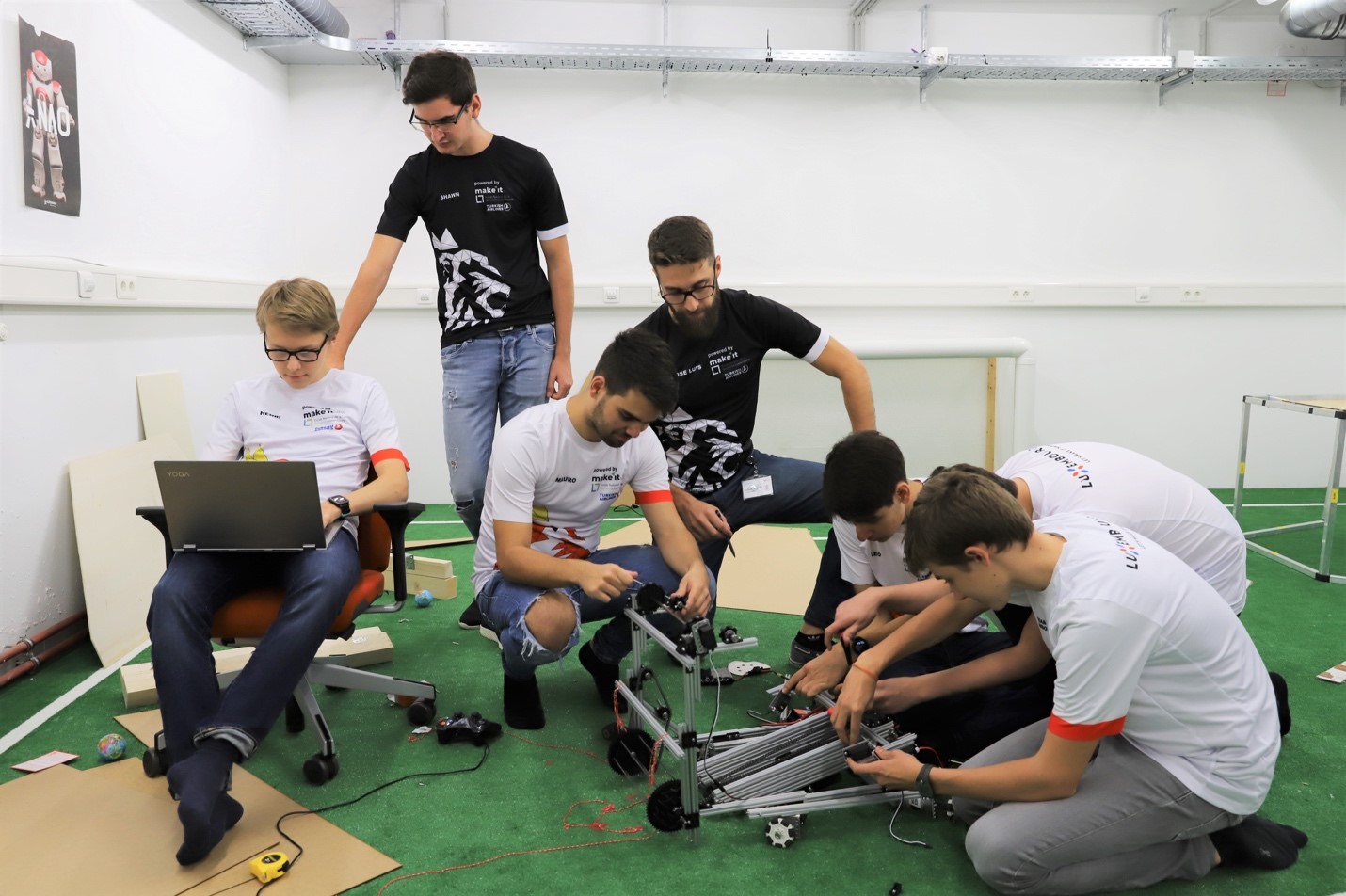It’s not always easy being a researcher in automation and robotics. Tell someone what you do, and there’s a good chance they’ll ask you if you’re planning on automating their job.
SnT researcher Dr. José-Luis Sanchez-Lopez has decided to take the matter into his own hands, and grabs every opportunity he can to educate people about what he does.
“It’s true, robotics is going to be a big part of many aspects of our lives,” says Sanchez-Lopez. “And it’s important that people feel comfortable with that. Here at SnT, we’re developing robots to tackle the three D’s: tasks that are dangerous, dull and dirty, that people don’t want to or can’t do.” Automation anxiety is nothing new. For over 200 years, people have been worrying about machines replacing humans, but so far technology has created more jobs than it has displaced. “There’s no evidence that new technologies such as artificial intelligence (AI) are going to buck this trend,” says Sanchez-Lopez. “Rather, we’re going to see the creating of thousands of new jobs that nobody could have envisaged.”

An increasingly tech-driven society will require an increasingly tech-savvy workforce, and part of Sanchez-Lopez’s mission is to inspire new generations to develop skills in robotics and AI. In October 2019, he’ll be mentoring Team Luxembourg at First Global, Dubai – an international youth robotics competition to design, build and programme a robot to compete against 275 other national teams.
“It’s going to be super cool,” he enthuses. “There’s going to be an arena, representing the sea, and each robot will compete against the clock to collect pollution.” The robots will have to deposit the pollution – or rubber balls – in containers representing different levels of treatment. They’ll get two points for pushing a ball into the bottom level (containment), three points for lifting it into the second level (recycling), and six points for throwing it into the highest level (reuse).

Sanchez-Lopez is confident that the team of five school students and two mentors can do well. Three of them were part of the group he mentored for the Luxembourg Youth Robotics Challenge (LYRC) – the national qualifying round for First Global – in May 2019. “They had to build a robot to recognise and pick up certain objects, so they’ve already shown lots of skills – aptitude for design, mechanical skills to mount everything, electronics to build circuits and solder, and programming knowledge to prepare the robot for the task.”

Eight teams took part in LYRC. Each started with the same components, but came up with very different solutions. “It’s inspiring to see so much enthusiasm for robotics in Luxembourg,” says Sanchez-Lopez. “A lot of that is down to Make It asbl, the charity that organised LYRC, and selected the team for First Global. Thanks to them, the team has got all the sponsorship it needs to go to Dubai in October.”
Back to his day job, Sanchez-Lopez is part of a team improving the situational awareness of autonomous aerial robots. True to his word, these robots aren’t here to take our jobs. With their improved sense of space, they could one day be used to save lives, conducting search and rescue missions in confined spaces such as caves and buildings.


SnT is turning 10! We’ve come a long way since launching our activities in 2009. Stay tuned for a year full of celebrations, cutting-edge research, and new milestones.
OVER 40 INDUSTRY PARTNERS | MORE THAN 70 EUROPEAN PROJECTS | 103 GRADUATED PHDS | 4 SPIN-OFFS
